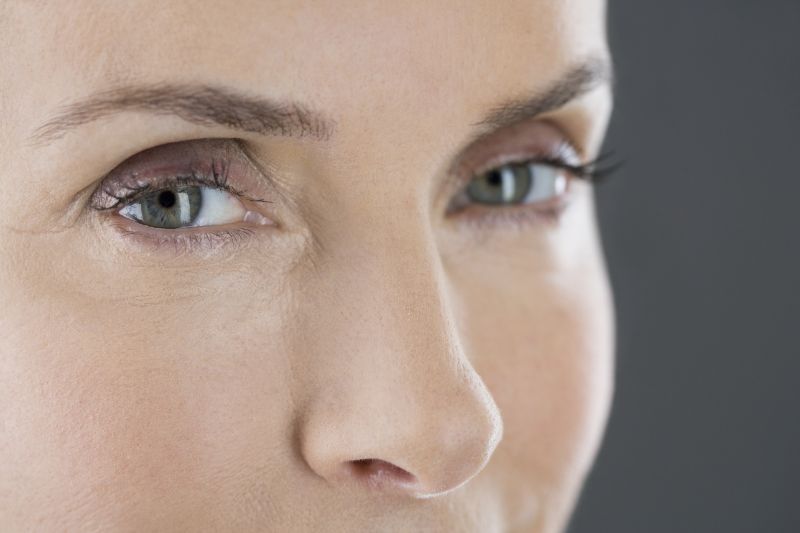
At EyesNY we have the latest technology to make sure our patients receive the best eye treatments. Our services range from surgical procedures to medications and therapies tailored to each individual case.
Our team of expert ophthalmologists at EyesNY is dedicated to providing the best possible care for a wide range of eye diseases, including glaucoma, cataracts, macular degeneration, Graves’ disease, and diabetic retinopathy.
When cataracts develop, the eye’s natural lens becomes cloudy, leading to blurry or distorted vision. Cataracts are typically age-related and can develop slowly over time. Symptoms of cataracts may include blurry vision, sensitivity to light, and difficulty seeing at night.
Aging is the most common cause of cataracts since the eye lens proteins start to break down over time, leading to blurry and cloudy vision. However, other factors, such as genetics, eye injuries, and long exposure to sunlight, can also contribute to the development of cataracts
Glaucoma is one of the most common eye conditions and causes the optic nerve to gradually deteriorate due to abnormally increased eye pressure. The optic nerve is in charge of sending visual information from your eye to your brain.
When the different types of glaucoma affect the eye, fluid starts to build up in the front part of the eye, causing blind spots in the vision.
In the early stages of glaucoma, there may be no noticeable signs. However, as the condition advances, symptoms may include a gradual loss of vision, blurred vision, halos around lights, and difficulty seeing in low light. In severe cases, undiagnosed and untreated, glaucoma can lead to vision loss.
Regular eye exams are the best way to identify glaucoma in the earliest stages. Treatment may include prescription eye drops to lower intraocular pressure, laser therapy, or surgery.
Diabetic retinopathy is a condition caused when long-term diabetes affects the functioning of the eyes. It occurs when high blood sugar levels damage the blood vessels in the retina.
The retina is the light-sensitive tissue at the back of the eye, which sends visual signals to the brain. When this condition occurs, a fluid discharge develops in the retina or beneath its tissue, leading to the retina expanding and impacting vision.
In its early stages, diabetic retinopathy may not cause any symptoms, but it can lead to blurred or distorted vision, floaters, or even vision loss as it progresses.
People with diabetes are recommended to have regular eye exams to detect early signs of diabetic retinopathy. Treatment may include medication injections and laser or vitrectomy surgery.
Graves and thyroid disease are autoimmune disorders that affect the thyroid gland and cause inflammation of the muscles and tissue around the eyes. This can lead to conditions such as bulging eyes, double vision, dry eyes, and eye pain.
Graves disease is an autoimmune disorder that affects the thyroid gland, causing an overproduction of thyroid hormone. Its symptoms include weight loss, anxiety, heat intolerance, sweating, and rapid heartbeat.
The two main types of of thyroid disease include Hypothyroidism and Hyperthyroidism.
To decompress the eye inflammation caused by these autoimmune diseases, your eye doctor may suggest undergoing oculoplastic surgery. This field of plastic surgery reconstructs the eyelids, eyebrows, tear ducts, and orbital cavities.
Macular degeneration is a medical condition that affects the center of the retina (macula) in the eye, which determines vision sharpness. Symptoms range from blurred or distorted vision, difficulty seeing in low light, and having a dark area in the center of your vision.
There are two main types of macular degeneration: wet and dry. Dry macular degeneration is the most common form and occurs when the light-sensitive cells in the macula start breaking down. Wet macular degeneration is less common but more severe and happens when blood vessels grow under the retina, causing blood leakage.
Early detection of macular degeneration can help minimize the vision damage this condition could cause. Although there is no cure, your doctor may prescribe a drug treatment or photodynamic therapy to slow its progression.
EyesNY treats multiple eye diseases to help patients improve their eye health. Our specialized team of ophthalmologists is ready to assess your needs and give you the high-quality vision care you deserve.
We work with cutting-edge technology to identify the root cause of your eye disease and create personalized treatment plans. Our caring staff is ready to welcome you and meet your ocular health and vision needs.
We treat multiple eye diseases, such as glaucoma, cataracts, macular degeneration, Graves’ disease, and diabetic retinopathy.
If you’d like a consultation or more information, call us, request an appointment online, or visit our clinics. We have multiple locations around New York, including Malta, Clifton Park, Troy, Saratoga Springs, and Queensbury.
Malta
658 Malta Ave., Ste 101
Malta, NY 12020
Phone: (518) 580-0553
Saratoga Springs
414 Maple Ave Ste 200
Saratoga Springs, NY 12866
Phone: (518) 580-0553
Clifton Park
1712 U.S. 9
Clifton Park, NY 12065
Phone: (518) 580-0553
Queensbury
535 Bay Road
Queensbury, NY 12804
Phone: (518) 580-0553
Troy
2200 Burdett Street Ste 206
Troy, NY 12180
Phone: (518) 580-0553
